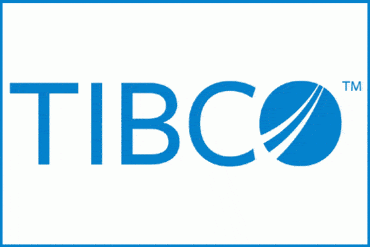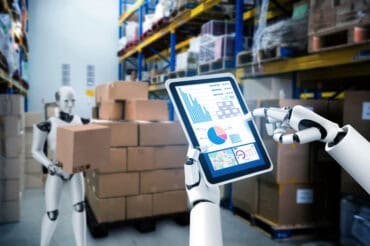
In this week’s real-time analytics news: the AWS re:Invent conference opened the announcement floodgates.
Keeping pace with news and developments in the real-time analytics and AI market can be a daunting task. Fortunately, we have you covered with a summary of the items our staff comes across each week. And if you prefer it in your inbox, sign up here!
Amazon Web Services (AWS) made numerous announcements at this week’s AWS re:Invent 2024 conference. Some of the key announcements relevant to supporting the development, deployment, and running of real-time analytics, artificial intelligence, and data-driven applications include:
- Amazon announced Amazon Nova, a new generation of foundation models (FMs) that have state-of-the-art intelligence across a wide range of tasks and industry-leading price performance. Amazon Nova will be available on Amazon Bedrock.
- New Amazon Simple Storage Service (Amazon S3) features that make S3 the first cloud object store with fully managed support for Apache Iceberg for faster analytics and the easiest way to store and manage tabular data at any scale.
- The general availability of AWS Trainium2-powered Amazon Elastic Compute Cloud (Amazon EC2) instances, and new Trn2 UltraServers, enabling customers to train and deploy today’s latest AI models as well as future large language models (LLM) and foundation models (FM).
- New capabilities for Amazon Aurora and Amazon DynamoDB to support customers’ most demanding workloads that need to operate across multiple Regions with strong consistency, low latency, and the highest availability, whether they want SQL or NoSQL.
- New innovations for Amazon SageMaker AI to help customers get started faster with popular publicly available models, maximize training efficiency, lower costs, and use their preferred tools to accelerate generative artificial intelligence (AI) model development.
- The next generation of Amazon SageMaker, unifying the capabilities customers need for fast SQL analytics, petabyte-scale big data processing, data exploration and integration, model development and training, and generative artificial intelligence (AI) into one integrated platform.
- New capabilities for Amazon Bedrock. These newly announced capabilities help customers prevent factual errors due to hallucinations, orchestrate multiple AI-powered agents for complex tasks, and create smaller, task-specific models that can perform similarly to a large model.
NVIDIA announced a collaboration with Amazon Web Services (AWS) that extends NVIDIA NIM microservices across key AWS AI services to support faster AI inference and lower latency for generative AI applications. In particular, NVIDIA NIM microservices will now be available directly from the AWS Marketplace, as well as Amazon Bedrock Marketplace and Amazon SageMaker JumpStart, making it even easier for developers to deploy NVIDIA-optimized inference for commonly used models at scale.
In other NVIDIA news from the conference, the company announced:
- DGX Cloud on AWS, providing enterprises with a high-performance solution for AI model training and inference, plus direct access to NVIDIA expertise.
- The integration of CUDA-Q with AWS Braket, simplifying hybrid quantum-classical application development across multiple quantum processors.
- The integration of IGX Orin and Jetson Orin platforms with AWS IoT Greengrass, streamlining AI model deployment and device management at the edge.
Other re:Invent news from AWS partners
In addition to these announcements from AWS, many of its partners had news from the conference, as well, including:
Cloudera announced its partnership with AWS to deliver a solution for AI and analytics infrastructure, leveraging AWS Graviton processors. Together, Cloudera and AWS empower businesses to optimize performance for data processing, analytics, and AI while minimizing their resource consumption and carbon footprint.
Denodo announced that Agora, its new, managed SaaS solution that extends the capabilities of the Denodo Platform into a fully managed cloud solution, is now available in the AWS Marketplace.
Fujitsu announced that it has signed a three-year global strategic collaboration agreement (SCA) with Amazon Web Services (AWS). Through this collaboration, Fujitsu will combine its expertise in systems integration and its Fujitsu Uvance offering with AWS’s cloud services and cloud-native architecture to accelerate customers’ digital transformation and address business challenges.
Immuta announced support for Amazon Web Services (AWS) Lake Formation. By supporting AWS Lake Formation, joint customers can seamlessly manage and enforce complex data access policies at scale across various AWS services.
MongoDB announced that a new cohort of organizations have joined the MongoDB AI Applications Program (MAAP) ecosystem. By lending their experience and expertise to MAAP, Capgemini, Confluent, IBM, QuantumBlack, AI by McKinsey, and Unstructured will offer customers additional integration and solution options.
New Relic announced it is connecting New Relic AI, its in-platform generative AI assistant, into Amazon Q Business, AWS’ enterprise generative AI assistant for streamlining complex workflows. The collaboration integrates Amazon Q Business’ built-in retrieval augmented generation (RAG) capabilities with New Relic’s real-time monitoring and intelligence to help enterprises quickly detect and resolve operational issues.
Oracle announced the limited preview of Oracle Database@AWS. Customers will now be able to run Oracle Exadata Database Service on Oracle Cloud Infrastructure (OCI) in Amazon Web Services (AWS), starting with the AWS US East Region.
poolside and Amazon Web Services (AWS) announced a multi-year agreement to make poolside’s generative AI Assistant and foundation models (FMs) available in Amazon Bedrock. (AWS customers are now able to deploy poolside securely on Amazon EC2). As part of the agreement, poolside will also leverage AWS Trainium chips to power inference for its Malibu and Point foundation models.
PwC announced a strategic collaboration agreement with AWS to help drive industry innovation using the latest advancements in cloud and generative AI services. The collaboration will bring together PwC’s deep industry insights with AWS’ GenAI services, including Amazon Bedrock.
Qlik announced at the conference that it has been selected by Accenture to provide critical technology supporting GenWizard, Accenture’s comprehensive generative AI platform. By incorporating a Qlik data integration solution, GenWizard is set to deliver more accurate, timely, and valuable artificial intelligence (AI)-driven insights across various enterprise functions.
Red Hat announced that it has signed a strategic collaboration agreement (SCA) with Amazon Web Services (AWS) to scale the availability of Red Hat open-source solutions in AWS Marketplace. Red Hat intends to help organizations with hybrid cloud platforms on AWS infrastructure to address critical business needs for application modernization and AI deployments.
In other Red Hat news from the conference, the company announced the general availability of Red Hat Ansible Automation Platform Service on AWS as a managed offering in the AWS Marketplace.
Rubrik announced Rubrik Annapurna for Amazon Bedrock, which will give customers ready-to-go access to all enterprise data for more powerful generative AI initiatives. Delivered as a single API service, customers will be able to tap into all secure data embeddings from Rubrik Security Cloud, including data across on-premises, cloud, and SaaS environments.
Securiti announced it has achieved Amazon Web Services (AWS) Security Competency status in the new AI Security category announced at the conference. This designation distinguishes Securiti as one of a few inaugural partners recognized by AWS for their ability to secure AI workloads across all AI security use cases, including data security, security posture management, and threat detection and response.
Teradata announced it is strengthening its relationship with Amazon Web Services (AWS) to deliver ‘rapid-start’ Gen AI use cases when leveraging Teradata VantageCloud on AWS, integrated with Amazon Bedrock.
Other real-time analytics news in brief
MLCommons released AILuminate, a safety test for large language models (LLMs). The v1.0 benchmark – which provides a series of safety grades for the most widely-used LLMs – is designed collaboratively by AI researchers and industry experts. The AILuminate benchmark assesses LLM responses to over 24,000 test prompts across twelve categories of hazards.
ABBYY announced a partnership with IBM to power AI agents to automate document processing at a transformative level to generate greater value for businesses. With the partnership, ABBYY’s document AI platform Vantage will leverage IBM watsonx.ai capabilities to enhance the way data is extracted, processed, and analyzed across business documents.
Cirata announced the launch of Data Migrator 3.0, with production-ready support for Apache Iceberg, expanded capabilities for Databricks Delta Lake, significant enterprise security enhancements, and comprehensive extensibility. This major new version of Cirata’s technology empowers organizations to adopt open data architectures while improving scalability, automation, and security for their multi-cloud data management and analytics needs.
Clarifai unveiled the public preview of compute orchestration capabilities for AI workloads across any AI model, on any compute, at any scale. With Clarifai’s new compute orchestration capabilities, customers can maximize their compute investments, better leverage their cloud commitments and hardware for AI, and seamlessly use Clarifai’s SaaS compute — all while centrally managing and monitoring costs, performance, and governance.
Couchbase unveiled Capella AI Services to help enterprises address the growing data challenges of AI development and deployment and streamline how they build secure agentic AI applications at scale. The AI Services, including model hosting, automated vectorization, unstructured data preprocessing, and AI agent catalog services, allow organizations to prototype, build, test, and deploy AI agents while keeping models and data close together.
Elastic announced the general availability of its Elastic Cloud Serverless powered by a re-architectured Elasticsearch that is built on a Search AI Lake optimized for real-time applications. By decoupling compute from storage, indexing from search and using cost-effective cloud-native object storage, the architecture scales seamlessly while retaining the rapid, low-latency querying performance and AI relevance capabilities of Elasticsearch.
Hammerspace announced new contributions it has made to the Linux kernel, transforming standard Linux servers into powerful platforms for enterprise AI and HPC file and object storage. The latest capabilities, all available in the 6.12 Linux kernel, offer parallel reads and writes across multiple servers; accelerate metadata-heavy workloads by reducing latency, ensure uninterrupted access during server failures, and optimize data transfer speeds.
insightsoftware announced the launch of Simba Workday Drivers to empower organizations with improved data-driven decision-making. The Simba Workday drivers provide secure access to Workday data for analytics, ETL (extract, transform, load) processes, and custom application development using both ODBC and JDBC technologies.
The Linkerd community announced the latest version of Linkerd service mesh (created by Buoyant). The new release adds security, observability, and reliability to any Kubernetes cluster. Specifically, Linkerd 2.17 introduces several major new features to the project: egress traffic visibility and control; rate limiting; and federated services, a powerful new multicluster primitive that combines services running in multiple clusters into a single logical service. This release also updates Linkerd to support OpenTelemetry for distributed tracing.
Qlik announced the expansion of its AI-ready data integration capabilities, delivering new enhancements across SAP, Databricks, and Snowflake. These advancements empower enterprises to streamline data workflows, accelerate AI deployment, and gain faster insights, ensuring that business intelligence is built and scaled on quality, real-time data running on Amazon Web Services (AWS).
If your company has real-time analytics news, send your announcements to ssalamone@rtinsights.com.
In case you missed it, here are our most recent previous weekly real-time analytics news roundups:
- Real-time Analytics News for the Week Ending November 23
- Real-time Analytics News for the Week Ending November 16
- Real-time Analytics News for the Week Ending November 9
- Real-time Analytics News for the Week Ending November 2
- Real-time Analytics News for the Week Ending October 26
- Real-time Analytics News for the Week Ending October 19
- Real-time Analytics News for the Week Ending October 12
- Real-time Analytics News for the Week Ending October 5
- Real-time Analytics News for the Week Ending September 28
- Real-time Analytics News for the Week Ending September 21






























